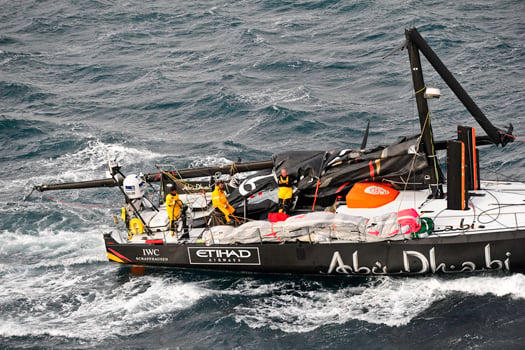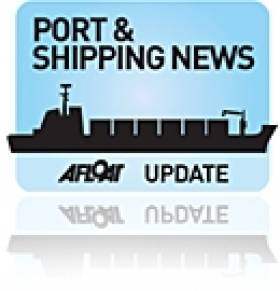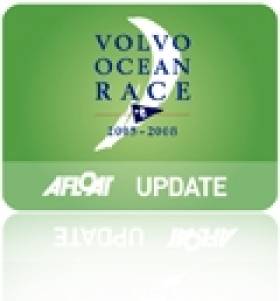Displaying items by tag: Repairs
Transfer of Cargo from Stricken Tanker Delayed
#SHIPPING - The transfer of cargo from the damaged oil tanker sheltering at the entrance to Belfast Lough has been posponed for at least two more days.
As previously reported on Afloat.ie, the 228-metre Germar Companion - which is carrying 54,000 tonnes of vacuum gas oil - was redirected to Belfast after reporting a cracked hull en route from Rotterdam to New York.
The merchant vessel has been sheltering off the Copeland Islands since 16 December, where an official examination recommended removal of the cargo.
Today (31 December 2011) had been the scheduled start date for the move of the tanker's hazardous cargo by ship-to-ship tranfer. But the move has been delayed as the second ship, the BW Seine, is still en route to Belfast Lough.
"It is currently in the North Sea and could take another two days before it reaches the vessel and starts to transfer the cargo," a coastguard spokesperson told the Belfast Telegraph.
The transfer will be managed by specialist company Fendercare Marine in the lough, and could take between 24 and 36 hours. Once finished, the Germar Companion will sail into Belfast for repairs.
Abu Dhabi Team Suffer Broken Mast Six Hours Into VOR
#VOLVO OCEAN RACE - Abu Dhabi Ocean Racing's challenge was nearly scuppered at the outset when their yacht suffered a broken mast just hours into the first leg of the Volvo Ocean Race yesterday. Dismast photos by Paul Todd below.
The accident occurred 30 nautical miles south of Cartagena on the Spanish Mediterranean, when the yacht Azzam encountered rough weather some six hours after leaving Alicante.
"Our mast broke into three pieces when landing off a big wave in 30+ knots of wind," said skipper Ian Walker. "We were sailing under a J4 and two reefs. We do not as yet know the cause."

A first leg disaster for Ian Walker on Abu Dhabi - Photo: Paul Todd
The broken mast pieces and rig were recovered, thanks to the "courageous" intervention of crewman Wade Morgan, who entered the water to cut away the top of the mainsail.
Walker added: “The mast from the first spreader up is now secured to the port side of the boat. About three or four metres protrude from behind the boat. A spider web of lines is keeping the operation intact. The crew are deeply disappointed.”
Yacht and crew - which includes Wexford man Justin Slattery - were last night headed towards the flatter water at Cabo de Palos before returning to Alicante under motor to begin repairs and get back in the race.
Abu Dhabi Ocean Racing are one of six teams competing in the epic round-the-world yacht race, which is set to finish in Galway next July.
Earlier this week the team finished first in the initial in-port race of the competition.
The official Volvo Ocean Race website has more on the story HERE.
Tipperary Boat Dealer 'Closes the Doors'
Tipperary Boat dealer Marine Action Boats Ltd, based on the river Shannon at Birdhill has 'ceased operations' according to an announcement on the firm's website. The Sports boat dealership 'closed its doors' and ceased trading on December 31 2010, according to managing director, Tadhg Foley. Marine Action Boats were sole importers of Crownline Sports Cruisers for Ireland, according to the website. The sports boat section of the marine trade market has been one of the hardest hit by the economic downturn. The firm also handled brokerage, repairs and boat maintenance. The full text of the announcement is as follows:
"Despite great efforts from ourselves and our loyal team, we would like to announce that we have ceased operations at Marine Action Boats, and we are no longer trading. We would also like to thank all our customers and our suppliers for their support over the past decade".






























































